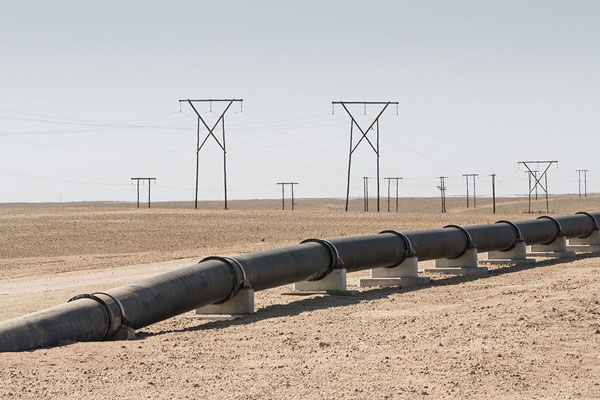Waha Pipeline Work to Cut Libyan Oil Output for a Week
Staff & Wire Report
TUNIS (Reuters) - Libya's Waha oil company began maintenance operations on a pipeline Wednesday that reduced crude output by 90,000 bpd, the National Oil Corp media office said.
The reduction in volume was expected to last for a week, the NOC media office said. Waha's oil output before maintenance work was due to begin was 286,000 bpd.
Waha, a subsidiary of NOC, has reported a number of pipeline leaks in recent months, including one that briefly reduced oil output from Libya’s Samah Oilfield by 60,000-70,000 bpd in early June and another that reduced flows by roughly the same amount in August. Another leak was quickly controlled a few days prior to the June outage.
In October, a major leak in the pipeline running to Libya's Es Sider terminal led to the pipeline being shut down for more than a week of maintenance. That shutdown resulted in a decline of 200,000 bpd in Libyan oil shipments, NOC said, blaming the leak on a lack of budget.
Libya's parliament rejected the 2021 budget proposal of the Government of National Unity (GNU), and NOC had already said earlier this year that the budget problems have caused reductions in output.
Related News
Related News

- Kinder Morgan Proposes 290-Mile Gas Pipeline Expansion Spanning Three States
- Valero Plans to Shut California Refinery, Takes $1.1 Billion Hit
- Three Killed, Two Injured in Accident at LNG Construction Site in Texas
- Tallgrass to Build New Permian-to-Rockies Pipeline, Targets 2028 Startup with 2.4 Bcf Capacity
- TC Energy Approves $900 Million Northwoods Pipeline Expansion for U.S. Midwest
- U.S. Pipeline Expansion to Add 99 Bcf/d, Mostly for LNG Export, Report Finds
- Enbridge Adds Turboexpanders at Pipeline Sites to Power Data Centers in Canada, Pennsylvania
- Great Basin Gas Expansion Draws Strong Shipper Demand in Northern Nevada
- Cheniere Seeks FERC Approval to Expand Sabine Pass LNG Facility
- Heath Consultants Exits Locate Business to Expand Methane Leak Detection Portfolio





Comments